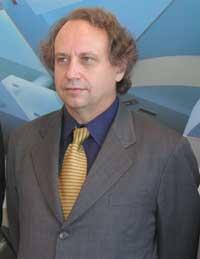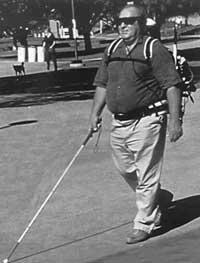Amazing world of Rodney Brooks: artificial intelligence and robotics
2002/06/18 Andonegi Beristain, Garazi - Elhuyar Zientziaren Komunikazioa
Following the morning press conference, he explained how robotics and artificial intelligence will affect our lives. In his opinion, robotics is a science that is only in its beginnings and that in the near future will give great advances and business opportunities.

In his speech yesterday he showed numerous examples of these advances: smart buildings, whiteboards capable of interpreting drawings, robots that understand our mood, interfaces that separate languages, Internet search engines capable of answering questions, interfaces that separate people through the voice, robotic prosthesis of the legs, robots to guide the surgery, prosthesis that offer ability to listen or see, etc.
This researcher revolutionized the world of robotics, focused on the acquisition of human appearance and intelligence. In his opinion, artificial intelligence and robotics are sciences that must adapt to our needs and not the other way around: the human being cannot change, but robots can adapt to our uses.
According to him, they may be missing by foreseeing the future use of robotics and artificial intelligence, but they will undoubtedly have more and more presence in our lives. This presence, however, should never restrict our privacy and, for both this and future applications, the limitations to implement should be agreed upon by everyone.
Biography of Professor Rodney Brooks
Professor Rodney Brooks is director of the Artificial Intelligence Laboratory at MIT (Massachusetts Institute of Technology), with 230 people, and Professor Fujitsu of Computer Science. He is also president and CEO of iRobot Corporation (120 people in Massachusetts).
Of Australian origin, PhD in Stanford in 1982. He was a scientific researcher at Carnegie Mellon University and MIT, and professor at Stanford before joining as a MIT professor. Throughout the eighties he developed the concept of behavioral robots and in the nineties he worked with humanized robots.
At present, it analyzes the limits between living and non-living systems. He is a founding member of the American Association of Artificial Intelligence (AAAI) and a member of the American Association of Science Progress. His last two books published in 2002 are: In the United States, the publisher Panteón Flesh and Machines: How Robots Will Change Us and in the UK, the publisher Penguin Robot: The Future Of Flesh and Machines.

Gai honi buruzko eduki gehiago
Elhuyarrek garatutako teknologia






